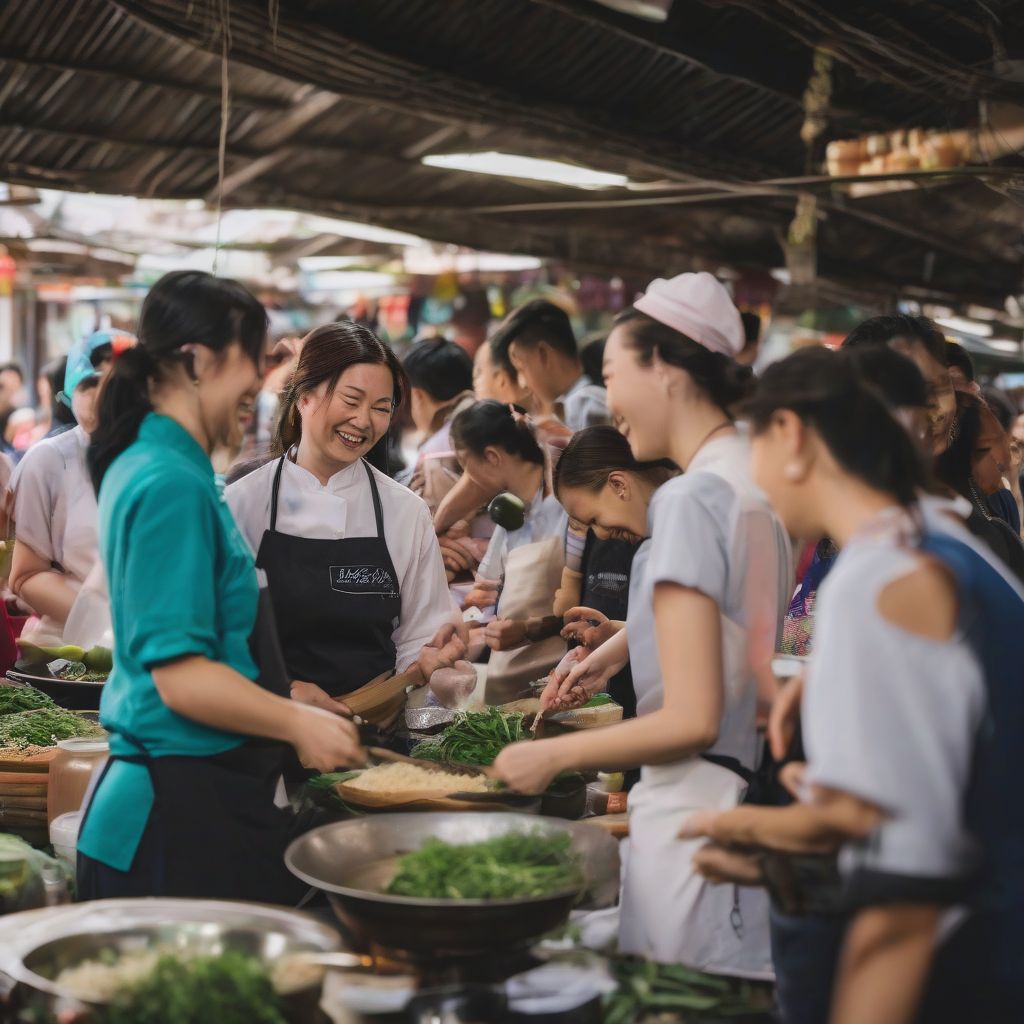Have you ever dreamt of biting into a juicy mango on a sun-drenched beach in Thailand, or savoring a delicate pasta dish in a bustling Roman trattoria? Food tourism, once a niche interest, has exploded in popularity, transforming the way we experience travel and culture. But what does the future hold for this ever-evolving industry? Let’s explore the emerging culinary travel trends and discover how they’re shaping the future of food tourism.
Authentic and Immersive Experiences
Forget staged cooking demonstrations and crowded buffet lines. Travelers are craving authenticity, seeking genuine connections with local cultures through food. This means participating in hands-on cooking classes with local families, foraging for wild ingredients in the countryside, and dining in intimate settings that showcase regional specialties. Think learning to make traditional Vietnamese pho from a grandmother in Hanoi or joining a truffle hunt in the forests of Italy.
Hyperlocal Cuisine and Farm-to-Table Dining
The focus on local extends to ingredients as well. Farm-to-table dining is no longer a trend, but an expectation. Travelers are increasingly interested in knowing where their food comes from and supporting sustainable agricultural practices. Expect to see more restaurants partnering with local farms, highlighting seasonal ingredients, and minimizing food miles.
Culinary Storytelling and Heritage Preservation
Food is a powerful storyteller. It connects us to the past, preserves cultural heritage, and reveals the heart of a community. Future food tourism will emphasize the stories behind the dishes, celebrating the history, traditions, and people who make each culinary experience unique. This might involve visiting historical food markets, learning about ancient cooking techniques, or attending festivals that showcase regional culinary traditions.
 Asian-Street-Food-Cooking-Class
Asian-Street-Food-Cooking-Class
Technology and Personalization
Technology is transforming every aspect of our lives, and food tourism is no exception. From online booking platforms to personalized recommendations, technology is enhancing the culinary travel experience.
AI-Powered Recommendations and Personalized Itineraries
Imagine an app that curates personalized food tours based on your dietary restrictions, culinary preferences, and budget. Artificial intelligence is poised to revolutionize how we plan and experience food trips, offering tailored recommendations and creating seamless itineraries.
Virtual Reality and Augmented Reality Food Experiences
Can’t travel just yet? Virtual reality and augmented reality are bringing the world’s cuisines to your doorstep. Immerse yourself in a 360-degree tour of a spice market in Marrakech or learn to make sushi with a virtual chef. These technologies are blurring the lines between physical and digital, offering new ways to explore and engage with food culture.
Food Tourism and Social Media
Social media platforms like Instagram and TikTok have become powerful tools for food discovery and inspiration. Travelers are using these platforms to share their culinary adventures, connect with local food bloggers, and find hidden gems that are off the beaten path. Expect social media to play an increasingly important role in shaping food tourism trends.
Sustainability and Responsible Travel
As awareness of environmental and social issues grows, travelers are seeking more sustainable and responsible ways to experience the world.
Eco-Conscious Dining and Reducing Food Waste
From reducing food waste to supporting eco-friendly restaurants, travelers are prioritizing sustainability. Expect to see more restaurants adopting zero-waste practices, sourcing ingredients locally, and minimizing their environmental impact.
Supporting Local Communities and Fair Trade Practices
Food tourism offers a unique opportunity to support local communities and promote fair trade practices. Travelers are increasingly interested in ensuring that their culinary experiences benefit the people who produce and prepare the food.
Ethical Sourcing and Animal Welfare
Concerns about animal welfare and ethical sourcing are influencing food choices. Expect to see more restaurants highlighting sustainable seafood, free-range poultry, and plant-based options on their menus.
Health and Wellness
The focus on health and wellness is also shaping the future of food tourism.
Culinary Wellness Retreats and Healthy Food Tours
From yoga retreats with farm-to-table cuisine to healthy food tours that explore local markets, travelers are seeking experiences that nourish their bodies and minds.
Plant-Based Cuisine and Vegetarian/Vegan Options
The demand for plant-based cuisine is skyrocketing, and restaurants are responding with innovative and delicious vegetarian and vegan options. Expect to see more plant-forward menus and dedicated vegan restaurants catering to this growing market.
 Vibrant-Vegan-Dish
Vibrant-Vegan-Dish
Conclusion
The future of food tourism is dynamic and exciting. From immersive cultural experiences to sustainable practices and personalized recommendations, the industry is evolving to meet the changing needs and desires of travelers. By embracing these trends, we can create a more meaningful, responsible, and delicious way to explore the world through food. What are your thoughts on these trends? Share your comments below and let’s discuss the future of culinary travel together!



